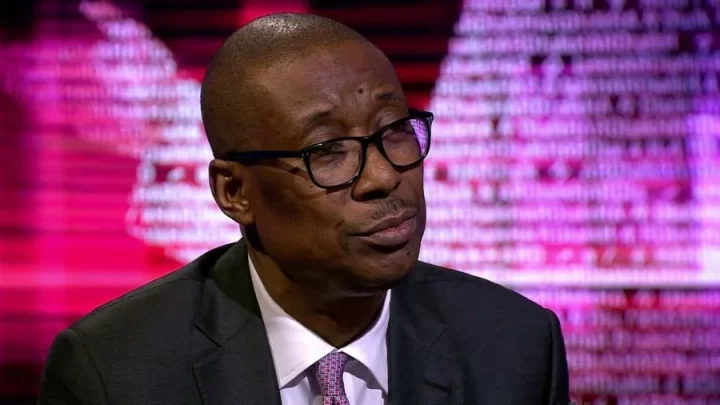The National Bureau of Statistics (NBS) disclosed that the nation recorded a deficit trade balance of about N3.02 trillion in the third quarter of 2021 as the value of imports continued to outweigh exports.

In its latest report on foreign trade in goods, the NBS revealed that total exports stood at N5.13 trillion in the third quarter of 2021, which shows a one per cent growth compared to the second quarter of the same year and a 71.38 per cent growth compared to the third quarter in 2020.
“Export in the third quarter of 2021 was still oil-dependent,” the NBS said.
Indeed, the expansion in the trade deficit has further raised concerns about how poor government policies, lack of incentives for non-oil export and high exchange rate, among others, continue to undermine the production of locally manufactured products for the export sector in the country.
The World Economic Forum noted that delays at Nigeria’s ports are caused by inefficient border administration and seem to stem from general mismanagement, undeveloped transport infrastructure and corruption. Business operators consistently complain about dealing with too many government agencies, arbitrary fees requested by some government officials, illegal clearing agents at the ports, and poor infrastructure.
The Guardian while tracking activities on the Apapa corridor, recently reported increasing cases of extortion with severe implications for the country’s exports. Last year alone, about 2000 export cargoes were stuck in traffic as a result of the two-week suspension imposed on export cargo containers going into Apapa ports.
Haulage operators lament the increasing spate of extortion at various checkpoints manned by security operatives and hoodlums along the ports access roads, just as the number of checkpoints between Liverpool roundabout and Coconut bus stop along the Apapa-Oshodi Expressway increased from four to eight in just two weeks.
Addressing Nigeria’s export challenges also means that the country needs to take into consideration the various structural issues that seem to have defied every effort for sanity.
The CBN, while unveiling its export programme, noted that there is a need for accessible ports and urged the state governments to play their roles in ensuring a structured export terminal.
The CBN Governor, Godwin Emefiele, while unveiling the initiative ‘Race to $200 billion in FX Repatriation (RT200FX) Programme’, said, “The RT200 programme is not intended to be a silver bullet to all our problems in the economy, rather, it is the first step to ensure that the CBN can carry out its mandate effectively and efficiently, which guarantees the preservation of our scarce commonwealth and the stability of our national currencies, the naira and the stability of our foreign exchange.”
Addressing Nigeria’s export challenges also means that the country needs to take into consideration the various structural issues that seem to have defied every effort for sanity.
The CBN, while unveiling its export programme, noted that there is a need for accessible ports and urged the state governments to play their roles in ensuring a structured export terminal.
The CBN Governor, Godwin Emefiele, while unveiling the initiative ‘Race to $200 billion in FX Repatriation (RT200FX) Programme’, said, “The RT200 programme is not intended to be a silver bullet to all our problems in the economy, rather, it is the first step to ensure that the CBN can carry out its mandate effectively and efficiently, which guarantees the preservation of our scarce commonwealth and the stability of our national currencies, the naira and the stability of our foreign exchange.”
“A massive boost in the production of such commodities will also help dampen/moderate the prices of these commodities so that the expected increase in demand for them does not become a pressure point for aggregate prices in the market. In order to maximize the potential and impact of this facility, we would replicate what other successful export-based economies have done by first prioritising and targeting certain commodities. We would create a geographic prioritization of crops across the country to achieve production efficiencies through the development of special areas that will cater to specific commodities,” he added.
Notwithstanding the efforts of the CBN, the CPPE’s Chief Executive Officer, Dr. Muda Yusuf, noted that a much deeper and robust I&E forex window should be in place before the CBN can contemplate termination of its forex market interventions.
According to them, exporters are currently not encouraged to remit export proceeds at the current official rate of N416/$.
The group pointed out the current pricing regime is a disincentive to investment, noting that such policy penalises exporters and is at variance with the overall objectives of the programme.
In addition, the group also stressed the need for exporters in the economy to have access to their export proceeds.
Specifically, the group argued that the current policy regime on export proceeds is stifling as well as inhibiting export initiatives, enterprise and growth.
They stressed the need for the apex bank to relax regulations around export proceeds, as well as ensure that exporters are able to sell their proceeds at a mutually agreed exchange rate to either the banks, importers or the BDCs as the case may be.
“The apex bank should institute a willing buyer-willing seller framework for export proceeds. CBN should expand the scope of its new foreign exchange supply strategies and incentives to cover other sources of foreign exchange inflows into the economy.
“These sources include, Foreign Direct Investments [FDI], Foreign Portfolio Investments (FPI), Diaspora Remittances, Diplomatic Missions in the country, Development Partners, Multilateral Agencies, Oil companies, International Aid agencies and Donor Agencies.”
“Inflows from these sources should be completely liberalised through a market-driven I&E window. Current regulatory regime for inflows is obstructive and inhibiting. Foreign exchange generating MDAs should be encouraged to sell their Forex at the I&E window at a market reflective exchange rate”, he added.
Support InfoStride News' Credible Journalism: Only credible journalism can guarantee a fair, accountable and transparent society, including democracy and government. It involves a lot of efforts and money. We need your support. Click here to Donate
